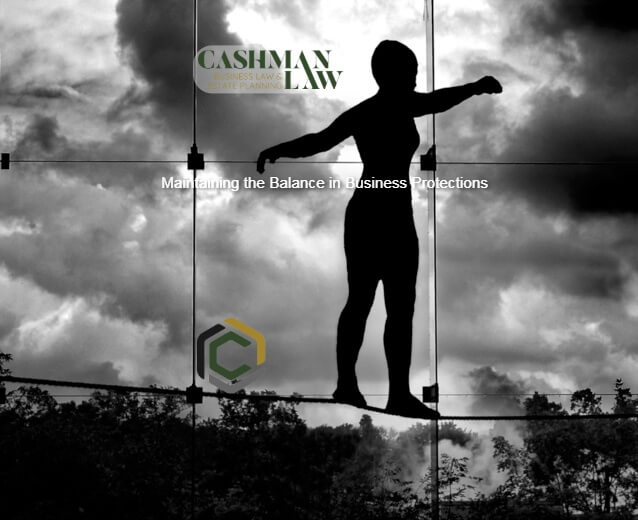It’s a balancing act. On the one hand, many business owners will tell you their trade secrets are their most valuable assets. Its an asset that is not just valuable, but often hard to calculate, because it is intangible property. Once shared, trade secrets are even harder to keep competitors from using against you. On the other hand, trade secrets are of limited value if you can’t use them. That requires sharing with employees, and often other companies you work with to do business.
Think of your client lists. They are of tremendous value and likely cost a great deal of sweat equity to build. But unless you share with your employees so they can use them to interact with your clients, you won’t get much of a return. Or think of your business processes. Again, these may have taken a great deal of time and expense through trial and error to create processes that maximize efficiency and minimize costs. But sharing how you do business may be a requirement for working with a business partner.
At odds are a company’s need to protect their secrets—which often requires a restraint on commerce in the form of confidentiality agreements and non-compete agreements—and the free market’s need for unrestrained trade to provide consumers with the best products at the lowest prices. If you are a frequenter of this blog (or really any blog on business law and litigation), you will likely see many articles on this topic. (Blogs: When Confidentiality Agreements Go Too Far; Fired Subcontractor Sues Owner for Intentional Interference).
A recent California Supreme Court decision, Ixchel Pharma, LLC v. Biogen, Inc. (2020) 9 Cal.5th 1130 [266 Cal.Rptr.3d 665, 470 P.3d 571], again seeks to strike this balance. In layman’s terms, the California Supreme Court recognized that Business A could contractually limit Business B from engaging in commercial dealings with other companies, provided the restriction promoted overall competition. In other words, business arrangements such as partnerships, exclusive dealing agreements, franchise rules, and output contracts will not necessarily be declared invalid just because they restrain trade in some way.
Takeaway
For California business owners, the limitations on restricting former employee competition remain limited, but the Inxchel case provides comfort that reasonable restrictions between businesses will be enforced. If you would like more information on whether your employment agreements or business contracts are likely to be upheld in a Court, contact CASHMAN LAW today for a free consultation. Hire legal counsel that has experience both in the boardroom and the courtroom. Whether Legacy or Business Planning, get the Plan You Deserve.™
Thank you for taking the time to read my blog. If you would like to receive notice as each new blog article is posted, fill out the “Contact Us” form and indicate in the comments section that you would like to receive an email. Your information will not be shared and you will not be contacted for any other purpose, unless you specifically request it.
The contents of this blog are intended to convey general information only and not to provide legal advice or opinions. The posting and viewing of the information on this blog should not be construed as, and should not be relied upon for, legal or tax advice in any particular circumstance or fact situation. While effort is taken to update the information presented, it may not reflect the most current legal developments. Please contact CASHMAN LAW FIRM LLLC (Hawai’i)/ CASHMAN LAW LC (California) to consult with an attorney for advice on specific legal issues.


